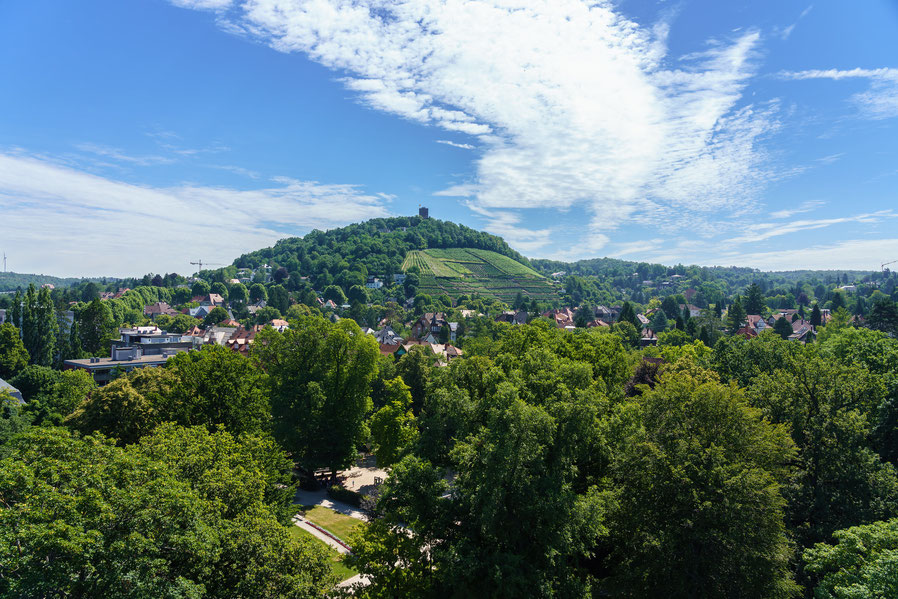Transformation towards resilient urban forests
Trees and urban forests mitigate heat stress for residents, filter air pollution, and provide multiple other ecosystem services. They are often referred to as the "green lungs" of the city. Particularly during the COVID-19 lockdown, urban trees made important contributions to the mental health of the population. At the same time, urban trees are threatened by ongoing climate change and increasing urbanization. Research conducted in the GrüneLunge 1.0 project in recent years has shown that trees in Karlsruhe's urban forest were often unhealthy due to prolonged periods of heat and lack of rainfall. As a result, many of the above-mentioned services of the urban forest are threatened.
In order to counteract the further decline of urban forests and increase their resilience, the BMBF-funded project GrüneLunge 2.0 aims to translate previous scientific findings into action. In addition to ITAS, which is the leading manager of the joint project, the cities of Karlsruhe and Rheinstetten are involved as municipal partners. Scientific partners are the Forest Research Institute Baden-Württemberg (FVA) in Freiburg, the German Weather Service with its Center for Medical Meteorological Research (ZMMF), also located in Freiburg, and the Institute for Meteorology and Climate Research Atmospheric Environmental Research (IMK-IFU) in Garmisch-Partenkirchen.
Over the next two years, the main goal of GrüneLunge 2.0 will be to implement and consolidate adaptation measures for the future management of urban forests. Based on the data collected in GrüneLunge 1.0, we will set up a geoportal to illustrate the current provision of 35 different ecosystem services. A series of expert interviews and workshops will explore the extent to which ecosystem service points can be used in the future management of urban forests. Further, an ecosystem services model is being developed for the Karlsruhe region to assist foresters and horticulturists in more precisely calculating pollutant removal and heat stress mitigation at the individual tree level. In addition, an interactive internet portal is being designed together with the FVA to select the most suitable tree species for future plantings in urban areas. For the first time in Germany, a heat warning system is being developed that functions at the neighborhood level and takes particular account of the needs of vulnerable groups such as children or the elderly.
The shift toward resilient urban forests will not be achieved without citizen participation. A new forum on street trees will encourage citizens to meet regularly and share their ideas on how to care for urban trees and green spaces. Overall, the project thus aims to improve adaptation planning for future urban forests.
The activities in GrüneLunge 2.0 are divided into four thematic work packages, each of which is led by one project partner. Please follow the links for further information on the individual topics:
.png)
